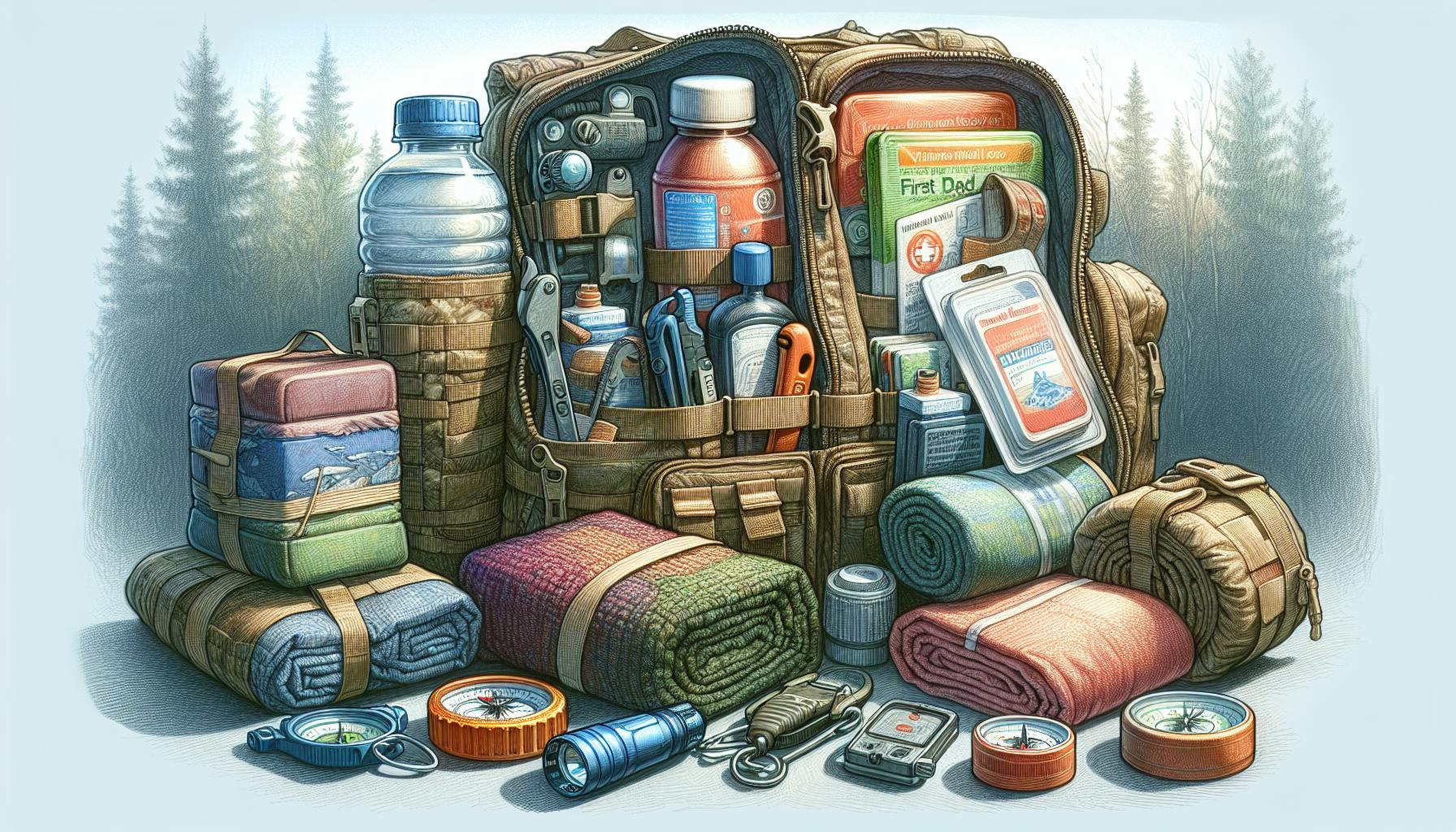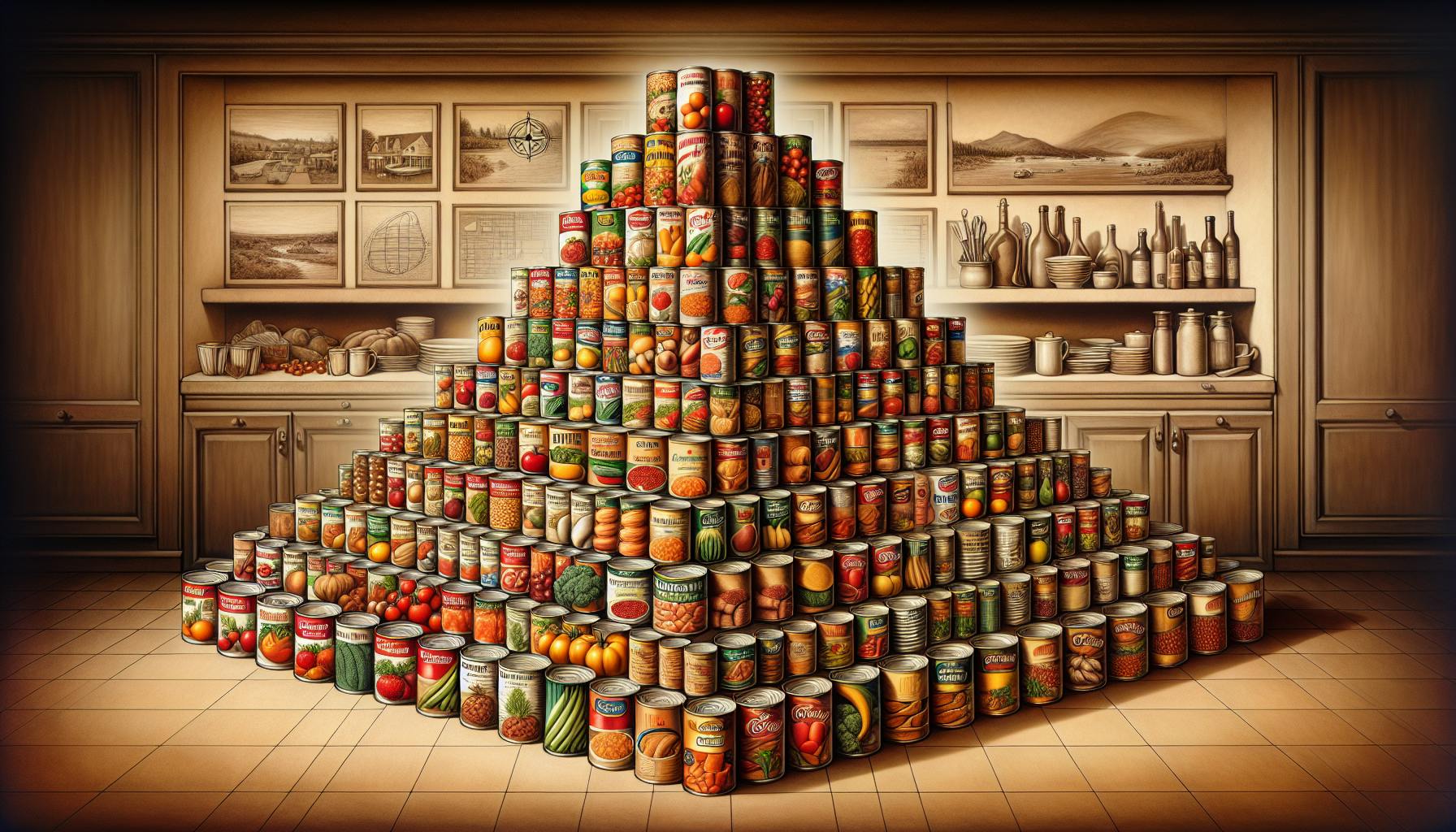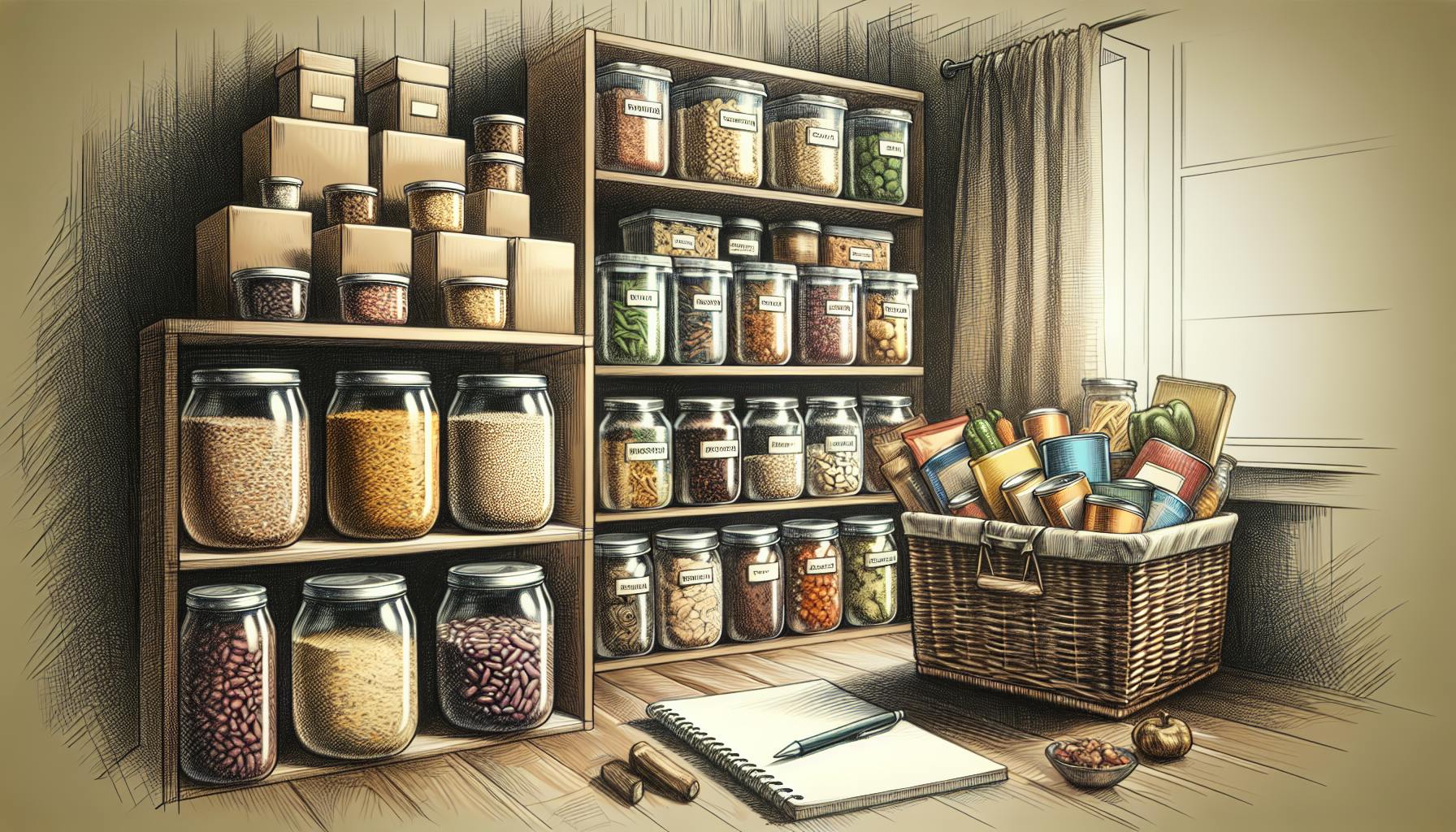When it comes to being prepared for emergencies, most would agree that having the right tools on hand is critical for survival.
Luckily, this comprehensive guide on prepper tools essentials provides everything you need to equip yourself for emergency preparedness and self-reliance.
You'll get a full overview of must-have items for your prepper's toolkit based on key survival needs, along with product recommendations, storage tips, and customization advice to build the perfect portable solutions for your situation.
Introduction to Prepper Tools Essentials
This introductory section provides an overview of essential prepper tools, why they are vital for emergency preparedness, and what key items every survival toolkit should contain. We'll explore building a versatile, portable toolkit optimized for reliability across various disaster scenarios.
Defining Prepper Tools and Kits
Prepper tools refer to equipment and gear that facilitates preparedness for emergencies and survival situations. A well-designed prepper toolkit contains multifunctional, durable tools to secure basic needs like water, food, shelter, navigation, communication, medical care, and defense.
Examples include:
- Multi-tools with knives, pliers, screwdrivers
- Water filtration systems (e.g. LifeStraws)
- Fire starting kits with matches, lighters, firesteel
- Two-way radios for communication
- First aid kits for medical emergencies
Choosing versatile, compact tools ensures maximum utility while remaining portable.
Benefits of Preparedness Tools
Having reliable, portable tools readily available provides:
- Independence to secure your needs
- Safety and security for unpredictable events
- Peace of mind knowing you can handle challenges
The right prepper tools empower you to overcome struggles from natural disasters to societal instability. Building your capabilities now allows you to handle whatever the future brings.
The Ultimate Survival Tools List for Preppers
This section will delve into a comprehensive survival tools list, detailing the best prepper tools that are essential for any well-rounded survival kit. We'll discuss the importance of each item and how it can be used in various emergency situations.
Water Gathering and Purification
Safe water access is the #1 survival priority. Equip your go-bag with durable water bottles, filtration systems, and chemical treatment tablets to purify water found in the field. A good rule of thumb is to have 1 gallon of water storage per person per day.
Portable water filters like the Sawyer Mini and Lifestraw are reliable and filter up to 100,000 gallons. Pair them with collapsible BPA-free bottles for mobile use. Water purification tablets like Potable Aqua chlorinate water to kill bacteria and viruses when filters aren't available.
Food Procurement and Preparation
Stock nutritious disaster food supplies like freeze-dried meals, MREs, and high-calorie protein bars. Include basic foraging tools like fishing line, snares, and knives to obtain calories in the field. A mess kit with utensils, cups, and cookware allows you to prepare meals.
Having 2,000 calories per person daily is recommended. Focus on nutrient-dense foods that pack lots of energy in compact packages. Fishing line and snares can provide a sustainable protein source.
Shelter and Navigation
Plan for mobile shelter with tents, tarps, and padding like sleeping bags and pads. Have maps, compasses, GPS devices for navigation when infrastructure fails. Waterproof your supplies and shelter yourself from the elements.
In an emergency situation, your shelter location will largely determine your survival odds. Use navigation tools to locate an ideal site with water, resources, and defensible terrain.
Fire Starting and Climate Control
Include fire starters like matches, lighters, flint, and tinder to ignite fires for cooking, warmth, and signaling. Pack weather-appropriate clothing like wool, rain jackets, and gloves to maintain safe body temperature.
Hypothermia is a severe risk that can quickly lead to impaired decision making and death. Having multiple methods to start warming fires can be a lifesaver.
Tools for Repair and Construction
A basic toolkit with a hammer, nails, multitool, and duct tape can be invaluable for repairs and constructing improvised solutions. Durable tarps, rope, and paracord are also extremely versatile prepper tools.
You won't know what tools you'll need until you face an unexpected situation. A foundation of core tools allows ingenious solutions when resources are scarce. Necessity is the mother of invention - equip yourself to handle challenges.
Military Prepper Tools: Durability and Efficiency
In extreme environments, having durable and efficient military-grade gear can make the difference between life and death. As preppers, we can learn from the tools soldiers depend on in the harshest conditions.
Robust Communication Devices
Rugged two-way radios and satellite phones used by the military provide reliable communication when cell networks and wifi are unavailable. Models like the Motorola XPR7550 are designed to withstand shock, vibration, water, dust and temperature extremes. These prepper tools mean you can always call for help.
Tactical Medical Kits
A compact Individual First Aid Kit (IFAK) contains essential supplies for immediately treating trauma injuries. Having the right prepper tools on hand lets you quickly stop bleeding, dress wounds, manage pain, and more. Military-grade medical gear saves lives.
Rugged Navigation Gear
Military compasses like the Suunto M-9 can accurately guide your way even in poor visibility. Pair with a resilient GPS device like the Garmin Rino 750 for reliable on and off-grid navigation. With these durable prepper tools, you can navigate unpredictable terrain with confidence.
Heavy-Duty Shelter Options
No matter the weather conditions, military-grade tents and tarps provide reliable shelter and warmth. The US Military Surplus Extreme Cold Weather Tent is designed to insulate in frigid environments. Waterproof, tear-resistant tarps offer quick shelter from the elements.
Self-Defense and Security Tools
Situational awareness and non-lethal self defense tools like pepper spray ensure personal safety. Where legally permitted, firearms provide an extra layer of security. As with any prepper tool, proper training is essential. By learning from military doctrine, preppers can prepare for uncertain threats.
sbb-itb-b932644
Building a Comprehensive Prepper Toolkit
Use this closing section to take stock of essentials across all categories highlighted above. Prioritize versatile, durable gear that meets multiple needs to optimize your go-bag or bug out bag packing strategy.
Primary Tools and Backup Options
Have primary prepper tools available for each survival task, along with redundant backups in case something breaks or is lost. Layered resilience beats relying on single pieces of gear. Some examples include:
- Primary knife plus backup folding knife or multi-tool
- Primary firestarter (ferro rod) plus backup lighter and waterproof matches
- Primary water filter/purifier plus backup water treatment tablets
- Primary flashlight plus backup headlamp or flashlight
Having backup options for critical survival tools ensures you are never caught without the ability to meet core needs.
Special Considerations for Bug Out Bags
If building a mobile BOB, consider weight, space savings, and high-performance gear. Test and adjust your bag loadout with practice hikes before an actual emergency. Some key factors:
- Prioritize multipurpose prepper tools that fill multiple roles
- Consider mini/folding/packable versions of tools when available
- Lightweight and durable materials (titanium, high-tensile steels, composite handles)
- Modular, interchangeable parts for repairs/replacements
Get ruthless about eliminating non-essentials - every ounce counts when carrying a BOB over long distances.
Storing Tools for Quick Access
Stage prepper tools in secure but quickly accessible places like car kits, home supply caches, EDC packs. Having immediate access when disaster strikes saves precious time. Some tips:
- Carry critical best prepper tools on your person (EDC folding knife, flashlight, lighter, etc.)
- Stash key items around the house where they can be grabbed quickly
- Have larger caches staged in key locations (bug out vehicle, rally point)
The right mindset, knowledge and versatile, durable prepper tools form the foundation for effective emergency preparedness. Invest in quality gear, learn techniques, and stay vigilant.
Prepper Tools List: A Comprehensive Checklist
General Survival Gear
Having a well-stocked toolkit is essential for any prepper. Here are some of the basic tools every prepper should have on hand:
- Multi-tool: A good multi-tool like a Leatherman can serve countless functions from opening cans to making repairs. It's one of the most versatile prepper tools out there.
- Flashlight: A reliable flashlight is vital to navigate in the dark. Choose one that uses common batteries and consider having a hand crank or solar powered one as backup.
- Fire making kit: Staying warm and being able to sterilize water are critical. A kit with waterproof matches, a lighter, fire starter and tinder will help get a fire going fast.
- Pocket knife: A sturdy folding knife comes in handy for all kinds of survival tasks from preparing food to self-defense.
- Emergency blanket: These lightweight blankets help retain body heat and can be used for shelter. They also have signaling capabilities to call for help.
Specialized Equipment for Unique Scenarios
In addition to general gear, preppers should also tailor their survival tools for likely emergency scenarios:
- Urban disasters: Face masks, dust masks, crowbars, bolt cutters
- Wilderness survival: Compass, signal mirror, fishing line and hooks, snare wire
- Off-grid living: Solar panels, power stations, water filtration system, seeds
Choose scenario-specific tools to complement your general toolkit based on your location and potential threats.
Periodic Review and Maintenance Tips
It's important to periodically review your prepper tools, checking for expiration dates, wear and tear. Replace batteries, test equipment and swap out any degraded gear.
Storing gear properly helps extend lifespan. Keep tools clean, dry and organized. Conduct inventories every 6 months making notes of what needs replenishing or replacing.
Customizing Your Prepper Tools List
Tailor your toolkit to your specific situation:
- Location: Coastal, woodlands, urban
- Skills: Medical, farming, mechanical
- Likely emergencies: Weather, civil unrest
Focus first on covering fundamentals like light, fire and communication then customize with scenario-specific tools as needed over time.
Following a comprehensive prepper tools list helps ensure you have versatile gear to handle various emergencies. Stay organized, review it routinely and customize it to your situation.
Conclusion: Equipping Yourself for Any Eventuality
Having the right tools is critical for effective emergency preparedness. This guide has covered some of the most versatile and reliable options to include in your prepper toolkit. However, the key is to continuously educate yourself and adapt as new innovations become available.
Here are the key takeaways:
- Multi-tools, paracord, duct tape, and tarps offer utility across many different survival scenarios. Prioritize items that serve multiple purposes.
- Focus on quality over quantity. Well-constructed tools made of durable materials will prove far more valuable than having a vast array with questionable reliability.
- Regularly test and practice with your equipment. Comfort and familiarity with using your gear can make all the difference when every second counts.
- Pay attention to emerging prepper technologies. As new tools are developed, evaluate their potential to enhance your capabilities and flexibility.
- Maintain and resupply your resources over time. Replacing expired products and accounting for usage ensures you have what you need when it matters most.
Preparing for uncertainty demands resourcefulness, critical thinking, and dedication. But with the proper toolkit and the willingness to adapt, you can equip yourself for virtually any eventuality. Stay vigilant and ready by making preparedness a way of life.


